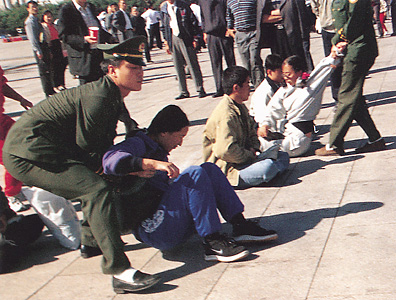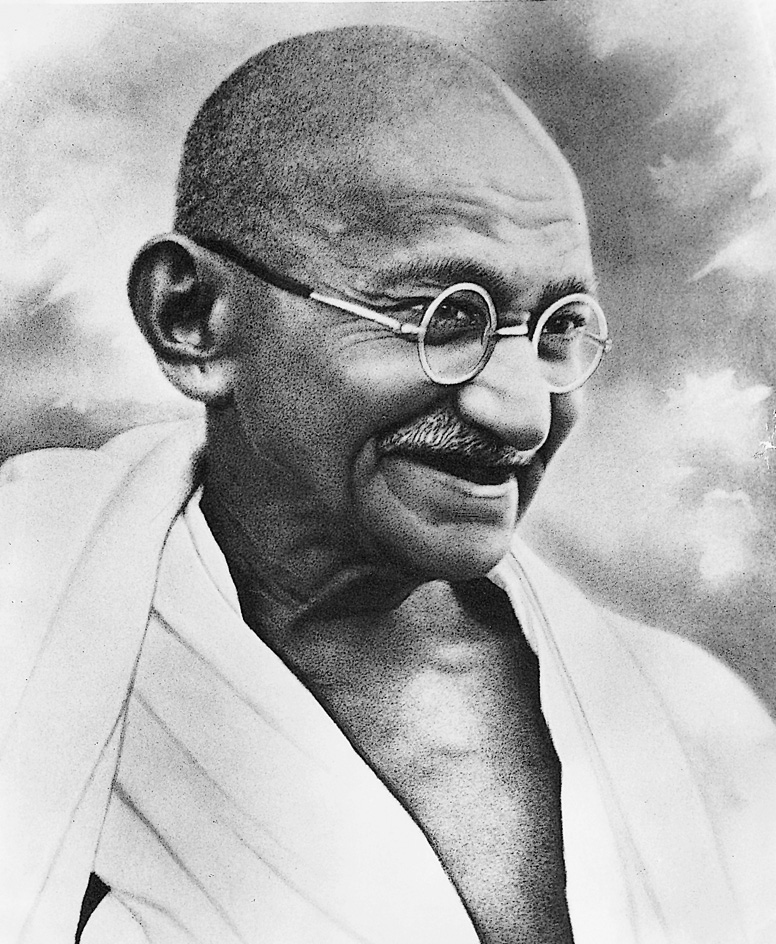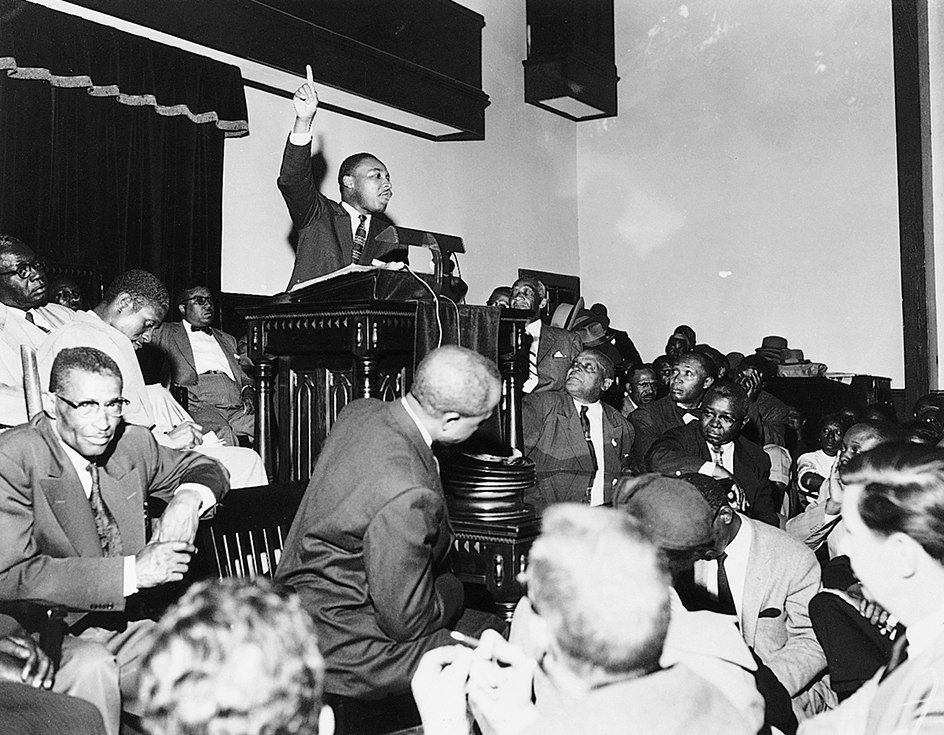Civil disobedience is the deliberate and public refusal to obey a law. Some people use civil disobedience as a form of protest to attract attention to what they consider unjust or unconstitutional laws or policies. They hope their actions will move other people to correct the injustices. Other people regard civil disobedience as a matter of individual religious or moral conviction. They refuse to obey laws that they believe violate their personal principles.

Most lawbreakers try to escape punishment. On the other hand, people who practice civil disobedience accept willingly their punishment for breaking the law. In this way, people who practice civil disobedience can dramatically demonstrate their deep concern about the situation they are protesting.
Many lawbreakers use violence. But most acts of civil disobedience are nonviolent. Civil disobedience is usually distinguished from riot, rebellion, and other types of violent opposition to law and authority.
Is civil disobedience ever justified?
Throughout history, there has been widespread disagreement concerning the use of civil disobedience in a society based on law and order. Some people claim that citizens are obligated to disobey laws they consider unjust, such as laws segregating the races. They say that such lawbreaking may be the best way to test the constitutionality of a law. Some defend the use of civil disobedience by pointing to Nazi Germany’s laws calling for extermination of Jews and other groups.
Other people claim that it is never right to break a law deliberately. They argue that defiance of any law leads to contempt for other laws. Any act of civil disobedience, they believe, weakens society and may lead to violence and anarchy (no government or law).
Many people approve civil disobedience only in extreme circumstances, and then only if it is nonviolent. They argue that injustices can usually be corrected legally through democratic processes. Free elections give people a chance to choose their leaders and express their views. Various constitutional provisions also protect the right of dissent and protest.
History of civil disobedience.
People have practiced civil disobedience for hundreds of years. When the disciples of Jesus Christ were ordered by the state to stop their teachings, they replied that they would obey God rather than mortals. In the A.D. 1200’s, the Christian theologian Saint Thomas Aquinas argued that people must disobey earthly rulers when the laws of the state disagree with the laws of nature, or God.
During the 1600’s and 1700’s, certain religious sects became known for civil disobedience. For example, the Quakers in colonial America refused to pay taxes for military purposes because they disapproved of war. In the 1850’s, abolitionists in the United States disobeyed the Fugitive Slave Law , which sought to compel the return of runaway slaves.
Many leaders of the women’s rights movement used civil disobedience to call attention to their demands. In 1872, for example, Susan B. Anthony was arrested for voting before it was legal for American women to vote. Her trial attracted nationwide attention.
The American writer Henry David Thoreau was one of the most influential spokesmen for civil disobedience. In 1846, he spent a night in jail for refusing to pay poll taxes. He argued that he did not owe allegiance to a government that captured runaway slaves and waged war on Mexico to expand its area of slavery. In his essay “On the Duty of Civil Disobedience” (1849), Thoreau declared that people should refuse to obey any law they believe is unjust:
Must the citizen ever for a moment, or in the least degree, resign his conscience to the legislator? Why has every man a conscience then?…It is not desirable to cultivate a respect for the law, so much as for the right. The only obligation which I have a right to assume is to do at any time what I think right. …If the injustice is part of the necessary friction of the machine of government, let it go, let it go. …but if it is of such a nature that it requires you to be the agent of injustice to another, then I say, break the law.
Thoreau’s essay strongly influenced Mohandas K. Gandhi of India. Led by Gandhi, the Indian people used such nonviolent acts as strikes and protest marches to free themselves of British rule. They gained independence in 1947.

In the United States, during the 1950’s and 1960’s, Martin Luther King, Jr., and other civil rights workers deliberately violated Southern segregation laws as a means of fighting racial injustice. Many opponents of the Vietnam War (1957-1975) committed various illegal acts in attempts to change U.S. policy. Some refused to pay their taxes. Others refused to register for the draft. During the 1980’s, nonviolent protests were directed at the repressive racial policy of apartheid (segregation) of the minority white government in South Africa.

In the 2010’s, several individuals attracted controversy for hacking (gaining unauthorized access) into government computer networks. They argued that their actions were a form of civil disobedience. Chelsea Manning, a U.S. Army soldier, was convicted of espionage after leaking hundreds of thousands of classified (secret) military documents to WikiLeaks. WikiLeaks is an organization that publishes secret government and business material on the Internet. WikiLeaks was founded by Julian Assange, an Australian Internet activist. Assange believes that publishing secrets can force governments and corporations to become more open and just. Edward Snowden, a former National Security Agency contractor, was also charged by the United States with espionage after leaking to newspapers thousands of highly classified documents on the U.S. government’s antiterrorism program within the United States and on its program of spying on foreign governments.
